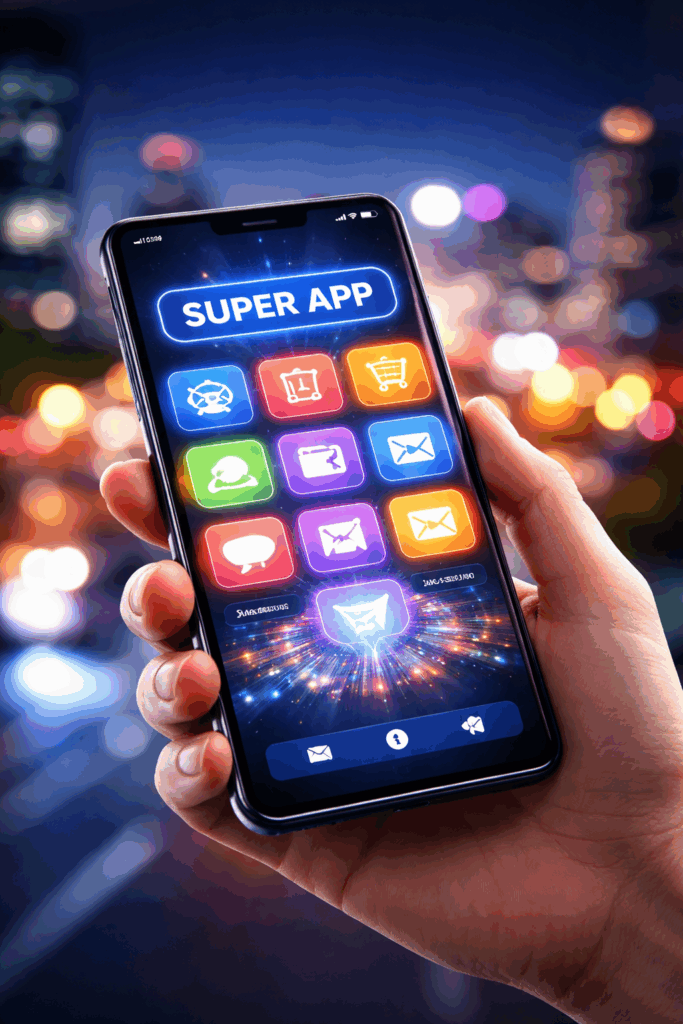
Artificial Intelligence (AI) is no longer a futuristic concept—it is a powerful force already shaping how we work, communicate, and live. From productivity tools to health trackers and entertainment platforms, AI-powered apps are creating smarter, faster, and more personalized experiences. With the growing adoption of AI across industries, understanding which apps are making the biggest impact can help both individuals and businesses stay ahead of the curve.
In this article, we explore some of the most innovative AI-powered apps you should know about, analyzing their features, benefits, and how they are transforming daily life.
One of the most popular categories of AI apps revolves around productivity and time management. These applications leverage AI algorithms to streamline workflows, automate repetitive tasks, and help users stay organized.
For example, Notion AI and Grammarly are widely used to enhance writing, generate content ideas, and improve clarity. AI assistants like ChatGPT-powered tools or Jasper AI help professionals draft emails, create reports, or brainstorm new strategies in seconds.
In addition, AI scheduling assistants such as Motion and Reclaim use machine learning to optimize calendars, predict deadlines, and prioritize tasks automatically. This reduces decision fatigue and allows users to focus on high-value work.
With productivity apps powered by AI, individuals and businesses experience greater efficiency, reduced stress, and improved performance in competitive environments.
Healthcare is one of the fastest-growing sectors for AI-powered applications. From fitness tracking apps to virtual health assistants, AI is helping people take charge of their well-being with more precision than ever before.
For instance, MyFitnessPal and Fitbit apps integrate AI to provide personalized workout and nutrition recommendations based on user data. Meanwhile, Ada Health and Symptomate use AI algorithms to analyze reported symptoms and suggest possible medical conditions, guiding users toward proper healthcare decisions.
Mental health apps like Woebot apply conversational AI to deliver therapy-like support, offering daily check-ins and mood tracking to improve emotional well-being.
By combining predictive analytics with user behavior, AI healthcare apps empower individuals to make smarter lifestyle choices, ultimately contributing to better health outcomes.
Managing personal and business finances has never been easier, thanks to AI-powered finance apps. These applications analyze spending habits, predict future expenses, and provide customized financial advice.
Apps like Cleo and Plum act as digital financial assistants, using AI to create budgets, set savings goals, and even recommend investments. Meanwhile, Mint uses AI-driven categorization to track expenses and highlight opportunities for cost savings.
In the business world, AI tools such as QuickBooks with AI features automate bookkeeping, invoice generation, and financial forecasting. Fraud detection has also improved with AI, as banking apps can now flag suspicious activity in real time.
With AI’s ability to process large volumes of financial data, users gain greater transparency, security, and control over their money.
Beyond work and finance, AI is making entertainment more immersive and creativity more accessible. Music, art, and video creation apps are leveraging machine learning to provide unique and personalized experiences.
For example, Spotify uses AI to curate playlists based on listening habits, while TikTok’s algorithm delivers highly personalized content recommendations. In creative industries, apps like Runway and Lensa AI help generate images, edit videos, and design graphics with minimal effort.
Writers and artists are also turning to AI apps such as Sudowrite for creative writing assistance or DALL·E-based tools for digital artwork generation. These apps democratize creativity, allowing anyone—regardless of skill level—to produce professional-quality content.
By blending human imagination with AI capabilities, entertainment apps are redefining how we consume and create digital content.
While the benefits of AI-powered apps are undeniable, the future also brings challenges and ethical considerations. Issues such as data privacy, algorithmic bias, and over-reliance on automation must be carefully managed.
Nevertheless, the opportunities far outweigh the risks. As AI technology continues to evolve, we can expect even more innovative applications across industries. From autonomous transportation apps to AI-driven education platforms, the potential is limitless.
For businesses, adopting AI-powered apps is no longer optional—it is a competitive necessity. For individuals, embracing these apps can mean improved productivity, better health, smarter finances, and enhanced creativity.
The key to success lies in using AI responsibly while leveraging its strengths to enhance human potential.
AI-powered apps are no longer experimental—they are essential tools transforming every aspect of our lives. Whether it is managing schedules, improving health, controlling finances, or fueling creativity, AI is driving innovation at an unprecedented scale.
By staying informed about the latest AI-powered applications, users and businesses can unlock new opportunities, gain competitive advantages, and shape a smarter, more connected future.
The apps highlighted here represent only the beginning. As AI continues to advance, the apps of tomorrow will deliver even more personalized, efficient, and intelligent experiences, making daily life not just easier, but also more meaningful.